Scaling Up One Health Education: Twinning Experienced Upper High Schools with New Schools
- SEAOHUN

- Aug 18, 2025
- 3 min read
Updated: Aug 26, 2025
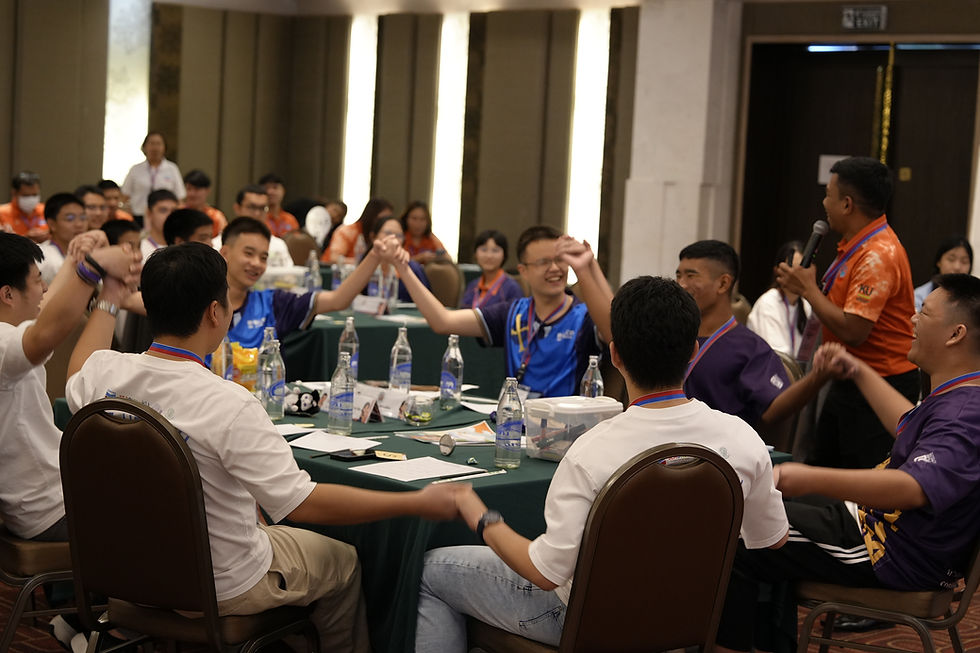
When the world faces health threats — from emerging infectious diseases to climate change — solutions can’t wait until students reach university. They need to begin now, in high school classrooms, where young minds can learn to see the connections between human, animal, and environmental health, and act on them.
That’s the mission behind the One Health Core Competencies (OHCC) program, developed by the Faculty of Education and the Faculty of Veterinary Medicine at Kasetsart University (KU), in partnership with SEAOHUN and with funding support from Chevron. Adapted from a successful undergraduate course, the OHCC program equips high school students in Grades 10–12 with practical skills in systems thinking, collaboration, cultural awareness, leadership, and problem-solving.
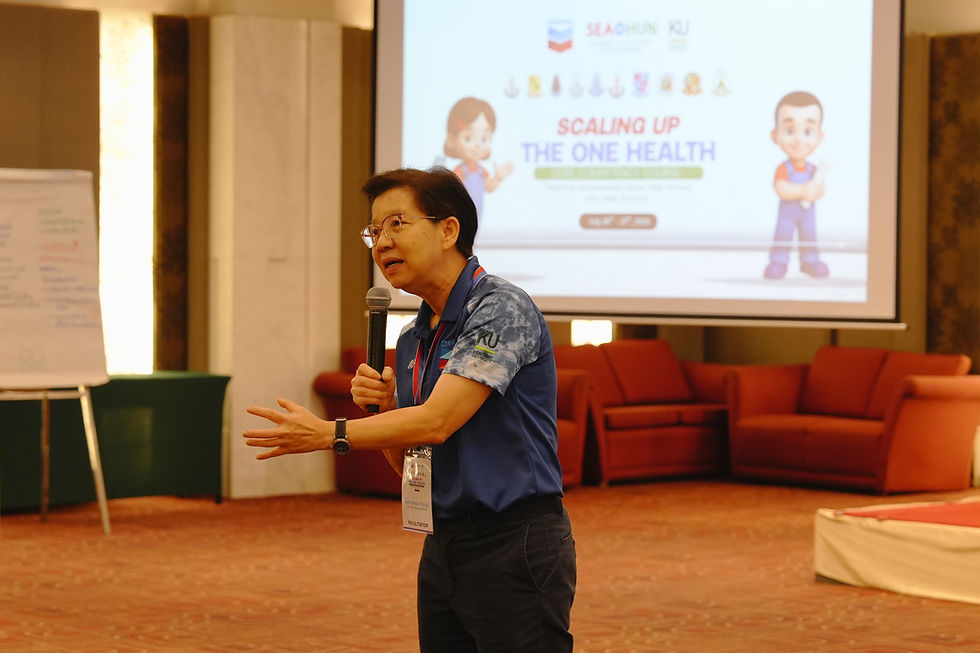
“Our goal is to empower young learners early with the knowledge and skills to address complex health challenges,” said Asst. Prof. Dr. Ouaypon Tungthongchai, Project Leader, Kasetsart University. “By integrating One Health into high school education, we’re building a foundation for future leaders who can think systemically and collaborate effectively.”
After a successful first phase in 2024 — which trained teachers from 10 Bangkok schools, launched student-led science projects, and even established One Health Student Clubs — the program returned in 2025 with a bigger ambition: scale up and expand.
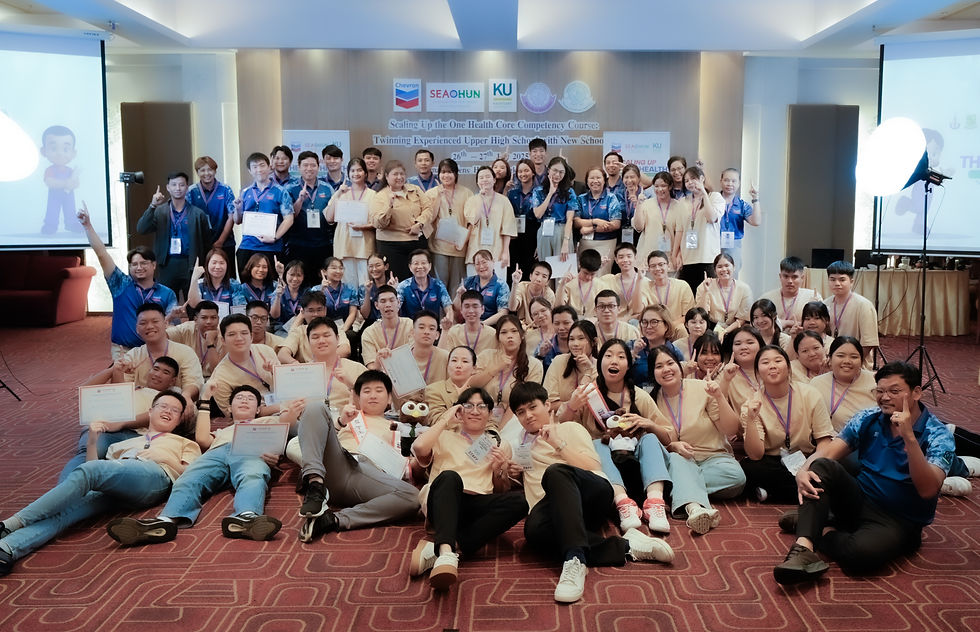
From Teachers to Students then Students to Students
On July 26–27, 2025, the KU One Health team transformed the hotel hall in Bangkok into a lively hub of ideas. 40 students and 20 teachers from 10 high schools came together — half from the best-performing schools in Phase I, half from new schools eager to join the movement.
The “twinning” model paired experienced schools with newcomers, creating space for mentorship and collaboration. Over two days, students dove into hands-on challenges — from leadership games to cultural ethics discussions. This made One Health concepts not just theoretical but tangible and relevant to their lives.
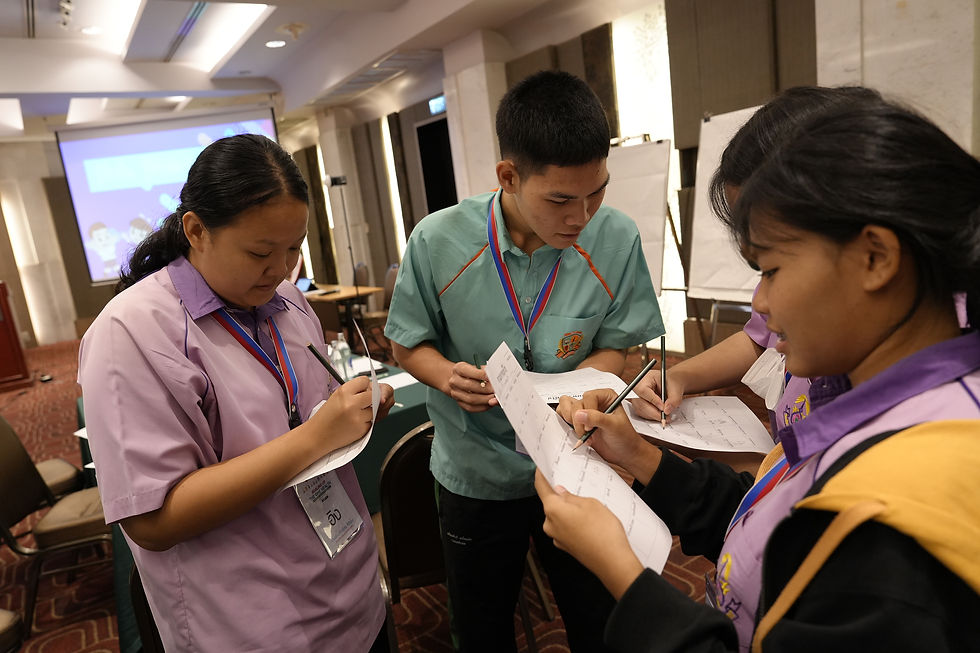
“As the representative of Sarasas Witaed Suksa School, it’s such an honor for me and my friends to come back for the second time,” said Nutthakitta Sriboonjit. “Meeting old faces and new friends is always heartwarming. This time, we became seniors to the next generation, passing down our One Health knowledge. It’s amazing to see the program grow.”
“I was very impressed and received knowledge to continuing the One Health Project at my school from senior,” added Theemawaree Plisak, Sa-nguan Ying School.
Ideas, Energy, and a Vision for Change
The highlight came during the Best Practices for One Health showcase, where teams took the stage to present creative projects aimed at improving health in their schools and communities. The room filled with cheers and applause as awards were handed out for the Best Group Project.
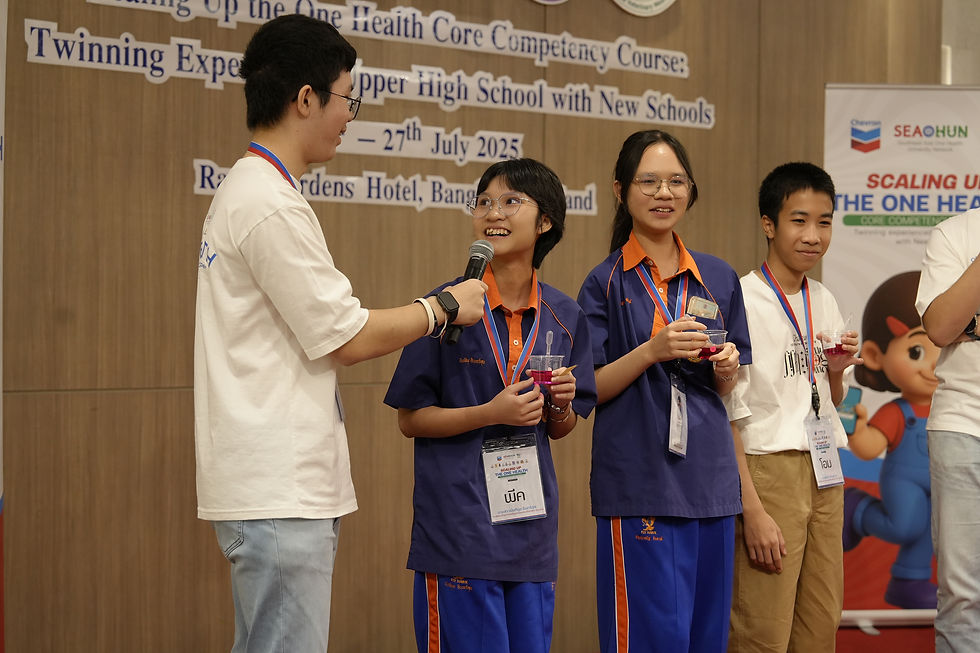
“It’s been a pleasure to guide the newcomers through the path of One Health,” said Siravit Bunleang, Bangkok Christian College.
For newcomers, the experience was transformative:
“The seven modules were fun and educational. I learned skills suited to my age and finally understood what One Health truly means,” said Parkorn Honghiranrueng, Saint Gabriel's College. “I hope this program continues for the next generation.”


For others, it was about building confidence and connection:
“I made friends from five schools, gained hands-on experience, and felt inspired to apply what I’ve learned to future projects,” said Phaksaran Khumthong, Princess Chulabhorn Science High School, Pathum Thani.
And for some, it sparked a renewed sense of purpose:
“Representing Sarasas Witaed Samut Prakan School at SEAOHUN’s One Health Education Program was incredibly inspiring,” reflected Praewa Sutthiprapa. “I left with meaningful connections and a passion to make a difference. Real change happens when we come together with a shared purpose.”
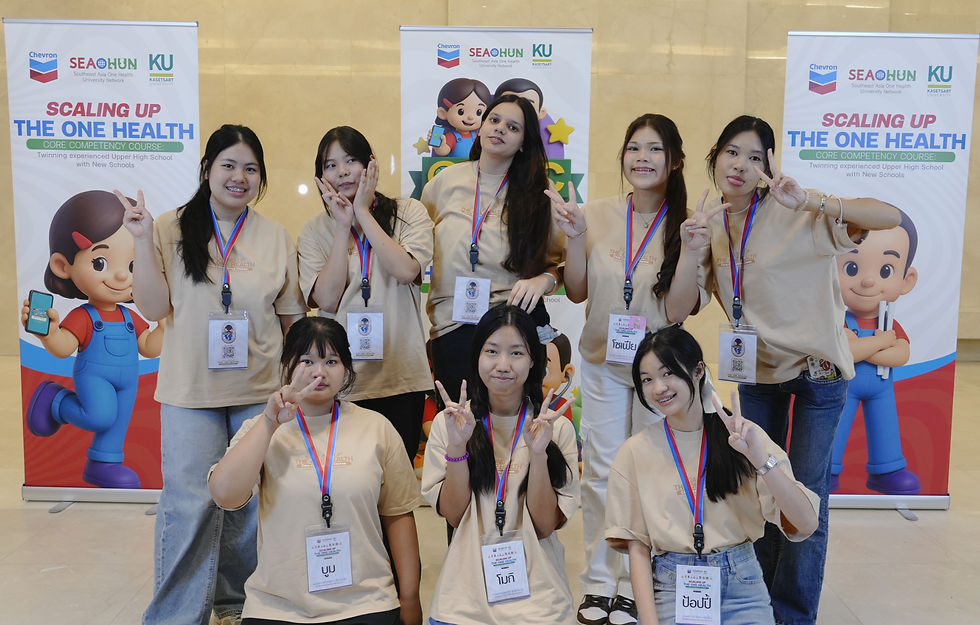
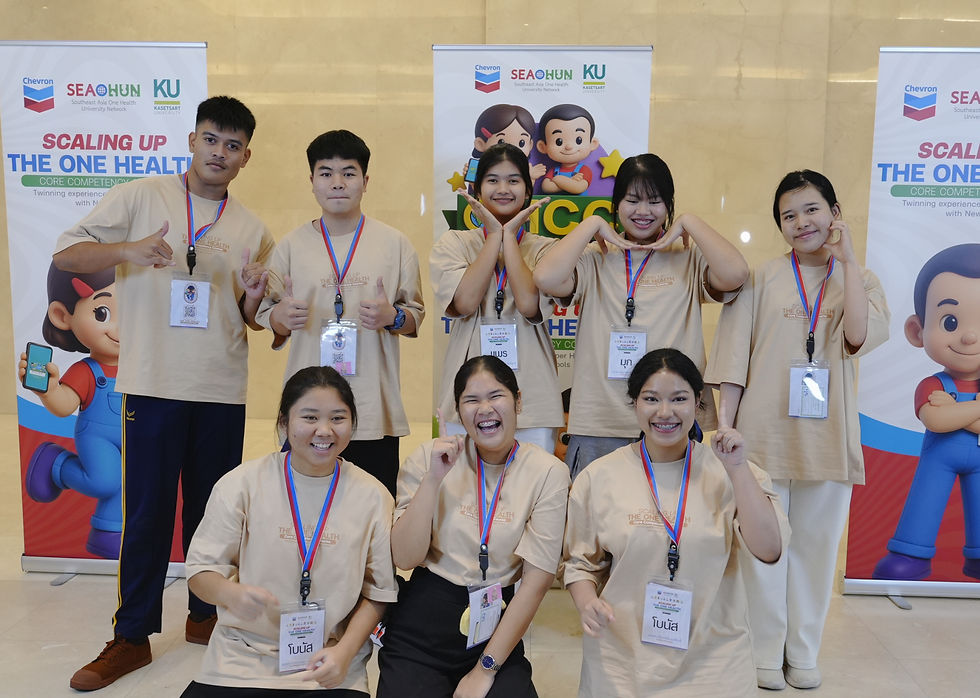
Building a Foundation
This training was just one milestone in a year-long effort to embed OHCC into Thailand’s high school education system. The 2025 plan includes meetings with school leaders, teacher training workshops, student activities, and a grand showcase on World One Health Day in November.

By the end of the July camp, the transformation was clear — students were leaving not just with new knowledge, but with the confidence and motivation to lead. As Dr. Tongkorn Meeyam, SEAOHUN Executive Director, told them: “When young people lead, they inspire change far beyond their schools.”
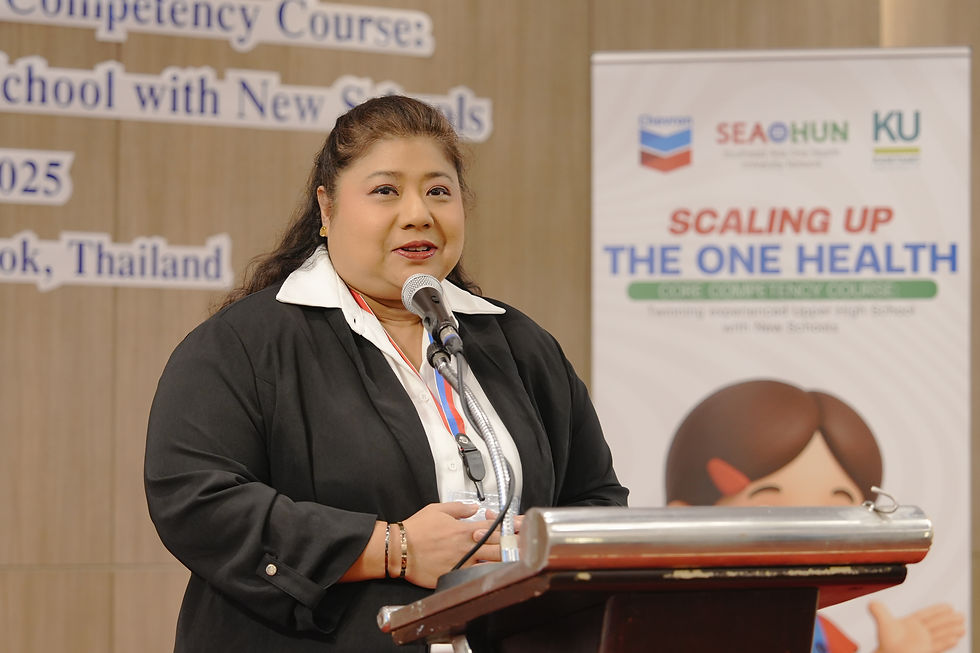
From returning student mentors to first-time participants, the camp proved that the future of One Health in Thailand is bright — and it’s already in the hands of passionate, capable youth.















Comments